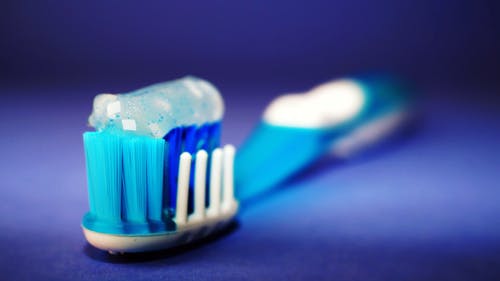Oral health acts as a gateway to a person’s overall well-being, serving as a reflection of what might be happening inside the body. Many are surprised to learn that maintaining proper oral hygiene goes beyond keeping teeth white and shiny. Poor oral health can lead to a variety of health issues that affect more than just the mouth. Understanding this connection is essential for preventing health problems and maintaining a healthy lifestyle.
Connection Between Oral Health and Overall Health
The mouth provides crucial insights into a person’s general health status. Poor oral hygiene allows bacteria to thrive, which can lead to infections and diseases beyond cavities and gum problems. When oral bacteria enter the bloodstream, they can cause inflammation and complications in other parts of the body.
Research has shown that oral health issues like gum disease can have ramifications across the body. Connections have been made between oral health and systemic conditions such as cardiovascular disease, diabetes, and respiratory infections. Gum inflammation has been linked to artery blockages, which can contribute to heart disease. Similarly, people with diabetes are more susceptible to oral infections, which can influence their blood sugar control.
Impacts of Ignoring Oral Health
Poor oral care does not just affect the mouth; it can lead to pain, discomfort, and serious health issues. Common problems like cavities, gum disease, and persistent bad breath can affect daily life and even lead to more severe interventions if not addressed.
-
Gum disease can result in swollen, painful gums and bad breath.
-
Tooth decay sets in when plaque formation is not managed through good dental habits.
-
Untreated gum disease can contribute to bone loss, leading to tooth instability or loss.
These oral health issues can lead to discomfort, costly treatments, and further medical complications, highlighting the need for vigilant oral care.
Signs of Oral Health Problems
Recognizing early signs of oral health problems can prevent further complications. Being aware of these signs enables you to take action before issues escalate. By understanding what to look for, you can maintain better dental health and reduce the risk of more severe problems later on.
Bleeding Gums
One of the most common red flags is bleeding gums. If you notice blood when you brush or floss, it’s essential to pay attention. This could indicate the presence of gum disease, which requires immediate attention to avoid further damage.
-
Brushing gently can help assess if the issue is due to aggressive cleaning.
-
Consult a dentist if the bleeding continues; they can provide treatment options.
Persistent Bad Breath
Another warning sign is persistent bad breath. While it is common to have bad breath occasionally, continuous issues may hint at underlying oral health problems. Conditions like gum disease or tooth decay can be the causes of chronic bad breath.
-
Try to identify if it’s linked to specific foods or hygiene habits.
-
Discuss this with your dentist during your next appointment for further evaluation.
Sensitivity to Temperature
Sensitivity to hot or cold foods is also a symptom worth noting. If you experience discomfort when consuming these items, it may suggest issues like enamel erosion or cavities. Ignoring this sensitivity can lead to worsening pain and potential tooth loss.
-
Monitor which foods trigger your sensitivity and identify patterns.
-
Ask your dentist for a thorough examination if the problem persists.
Mouth Sores and Toothaches
In addition to the previous signs, mouth sores and toothaches are significant concerns. These discomforts may indicate infections or other underlying issues that call for immediate care. Learning about these symptoms can enhance your awareness and encourage timely dental visits.
-
Keep track of how long the sores or toothaches last and any accompanying symptoms.
-
Early intervention can make a significant difference in treatment success.
Regular dental check-ups are essential for identifying and managing oral health issues. In addition to routine visits, having access to an emergency dental office can be crucial for receiving immediate assistance during unexpected dental problems. This proactive approach helps prevent the escalation of oral health issues, ensuring comprehensive dental care.
Influence of Lifestyle and Diet
Diet and lifestyle choices play crucial roles in oral health. Consuming foods rich in sugar and acid can increase oral health risks. Meanwhile, habits like smoking and excessive alcohol consumption can have harmful effects on the mouth.
-
Sugary foods can be broken down into acids by bacteria, leading to tooth decay.
-
Smoking exacerbates gum disease and increases oral cancer risks.
-
Hydration and balanced nutrition support overall oral health.
Adopting a healthy lifestyle and focusing on oral hygiene can radically improve both oral and general health. Choosing fruits over sugary snacks, staying hydrated, and avoiding tobacco are beneficial steps.
Preventing Oral Health Issues
Fortunately, many oral health problems are preventable with consistent and straightforward practices. Brushing twice daily, flossing, and visiting the dentist frequently are essential habits to cultivate. Regular visits to a dentist ensure teeth and gums remain healthy while addressing potential issues early.
Oral Health’s Wider Impact
The broad-reaching impacts of oral health on the body can’t be understated. Poor dental health, such as untreated gum disease, increases the risk of heart disease and worsens diabetes-related complications. The interaction between oral and systemic conditions underlines oral health as a crucial component of total health care.
Being informed about the effects of oral health sets the stage for beneficial lifestyle changes. Recognizing that oral health is the first line of defense against various systemic diseases should make maintaining it a priority.
Steps Towards Better Oral Health
Maximizing oral health involves committing to regular practices that reinforce good habits. In addition to daily brushing and flossing, focusing on diet, staying hydrated, and making positive lifestyle choices contribute to wellness.
-
Brush teeth twice daily for at least two minutes each time with fluoride toothpaste.
-
Floss daily to eliminate food particles and plaque from between teeth.
-
Opt for a balanced diet low in sugar and high in whole foods.
-
Visit a dentist for check-ups and professional cleanings at least every six months.
Awareness of body signals and seeking prompt help for new symptoms are essential for sustaining both oral and general health. Dentists provide guidance tailored to individual health needs, helping patients maintain oral health and prevent disease. The role of dental professionals extends to specialized procedures, contributing to overall oral health. Among these, tooth removal is an important aspect, as providers specializing in this procedure ensure safe extractions and minimize associated risks.
Closing Remarks
Oral health extends far beyond a bright smile, acting as a window into broader physical health. The connection between oral and systemic health means ignoring oral hygiene can have widespread impacts. By adopting a proactive approach to dental care, it is possible to mitigate the risks of systemic diseases. Care for oneself begins in the mouth, embodying the pathway to comprehensive wellness.





